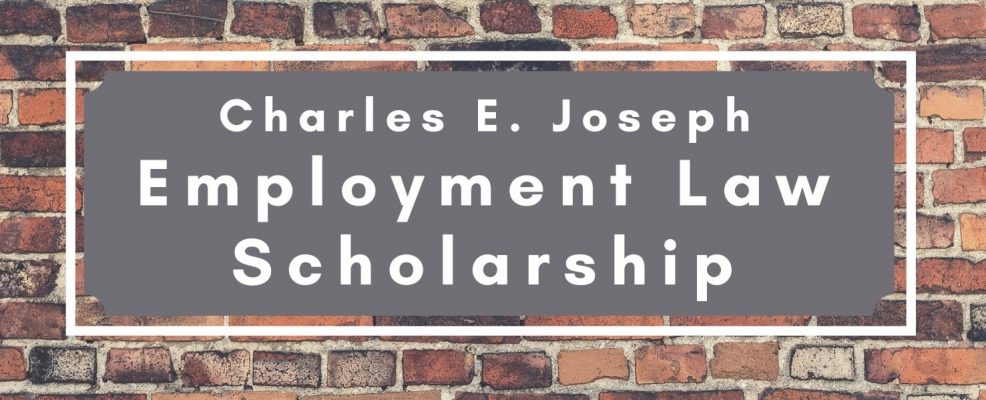
Forced Arbitration: An Attack on Workers’ Rights
June 24, 2025
By Ramya Shricharanam Krishna
The Law Students on Workers’ Rights series publishes essays from current and incoming students from top law schools across the country. These essays, submitted for the Charles E. Joseph Employment Law Scholarship, address the question “What is the most significant challenge facing workers’ rights, and what role should employment attorneys play in addressing that challenge?”
The right to a trial by jury was enshrined in the Constitution as a tribute to the legacy of rebellion against unchecked autocracy, even if just by propertied elites against those ranked higher than them. As the barons of the British Isles endeavored to defy the authority of King John and the Pope via the Magna Carta, and subsequently, the covert authority of the closed Court of Star Chamber, a rallying cry for a justice that was more swift, more public, and more entrenched in local communities resonated in the emerging America. This was exemplified by the Zenger trial, a landmark case which established juries as significant triers of both law and fact, and in their absence, canaries in the coalmine for siloed dissenters. The authors of the Declaration of Independence had among their many grievances against the Crown, “depriving us in many cases, of the benefits of trial by jury.”
Ironically, American workers suffer the same ills experienced centuries ago, or the looming risk of them, in the form of a modern day Star Chamber – forced arbitration. Arbitration happens when a third party, known as an arbitrator, evaluates a case in lieu of a judge or a jury. These proceedings often tout more streamlined procedures – limited discovery, closed door proceedings, and a faster timeline – making it an attractive option for employers that want speedy resolution, greater control over the dispute process, and above all, privacy, and one that is upheld by the courts for its judicial efficiency. Katz, Kochan, Maltby, and St. Antoine (2023) conducted a comparative analysis on outcomes in arbitration versus litigation, finding that employees won 19% of their cases in arbitration versus 1% of their cases in court litigation, that employees receive larger awards, are able to enjoy speedier trials, and are able to arbitrate claims considered too small to litigate.
However, the percentages of employees who won in arbitration versus court are heavily skewed – in this comparative analysis, 14,654 court cases were compared against 811 arbitration cases. The authors acknowledge that the cases in their datasets may not be comparable, but still present raw win rate comparisons. Further, their research emphasizes the importance of voluntariness, and in many instances where arbitration is instituted, employees are usually the recipients of an employer’s motion to compel arbitration, and they bear the burden of initiating the process of court-ordered arbitration, even when they may not have been aware that they signed an arbitration agreement or that it could be enforced.
Even when voluntariness is called into question, arbitration itself is the venue in which disputes of unconscionability and duress as to the arbitration agreement itself are resolved, creating a situation where employees are subject to arbitration agreements they signed while not being able to successfully enforce these against their employer. The only exception to this cycle is when statutory law prevents the enforcement of arbitration agreements as to certain claims. One key example of this is the Ending Forced Arbitration for Sexual Assault and Sexual Harassment Act, which not only applies to claims of sexual harassment or sexual assault, but also applies to all other claims relating to these claims within the same suit.
The coercion involved in many arbitration agreements stems from adhesion contracts, where offers are presented for acceptance or rejection, with no opportunities for negotiation. Arbitration agreements have been presented to employees within onboarding material, or in the job application itself, framed as a necessary procedural requirement in order to be even considered for the employment opportunity. According to the Economic Policy Institute (2018), mandatory arbitration also disproportionately affects industries with more women workers, African American workers, and low-wage workers, in addition to affecting 56.2% of American workers – more than 60.1 million who no longer have access to the courts, and limited access to appeal.
Employment lawyers can be crucial agents within the community educating prospective employees on the significance of arbitration agreements, but more importantly, diversifying their services in order to provide a wide variety of accessible services for different litigation needs and barriers, so that employees who are facing challenges to their livelihood are not forced to go pro-se or into debt in order to get justice. The overwhelmingly pro-employer landscape of legislation also demands lobbying on behalf of the employees who keep industry running, through amicus curiae briefs, political advocacy, and nurturing the next generation of employment attorneys representing plaintiffs, as this scholarship is doing, to ensure that America’s fight for visible justice remains.
Reflections from Charles Joseph
A majority of workers can no longer enforce their rights in court. Arbitration agreements push discrimination, retaliation, and wage theft claims into venues that favor employers. According to the National Employment Law Project, forced arbitration cost low-wage workers $9.2 in stolen wages in 2019 alone.
As Krishna argues, forced arbitration goes against the centuries-old tradition of the right to trial by jury––and often without giving employees a choice. Dedicated employment lawyers can help ensure that every worker gets their day in court.
Ramya Shricharanam Krishna holds a Master’s in Public Administration and sits on the Durham Juvenile Crime Prevention Council. She will attend North Carolina Central University School of Law in Fall 2025. Krishna is also the winner of the Charles E. Joseph Employment Law Scholarship for 2025. Contact Krishna on LinkedIn.
Charles Joseph has over two decades of experience as an NYC employment lawyer. He is the founder of Working Now and Then and the founding partner of Joseph and Kirschenbaum, a firm that has recovered over $200 million for clients.